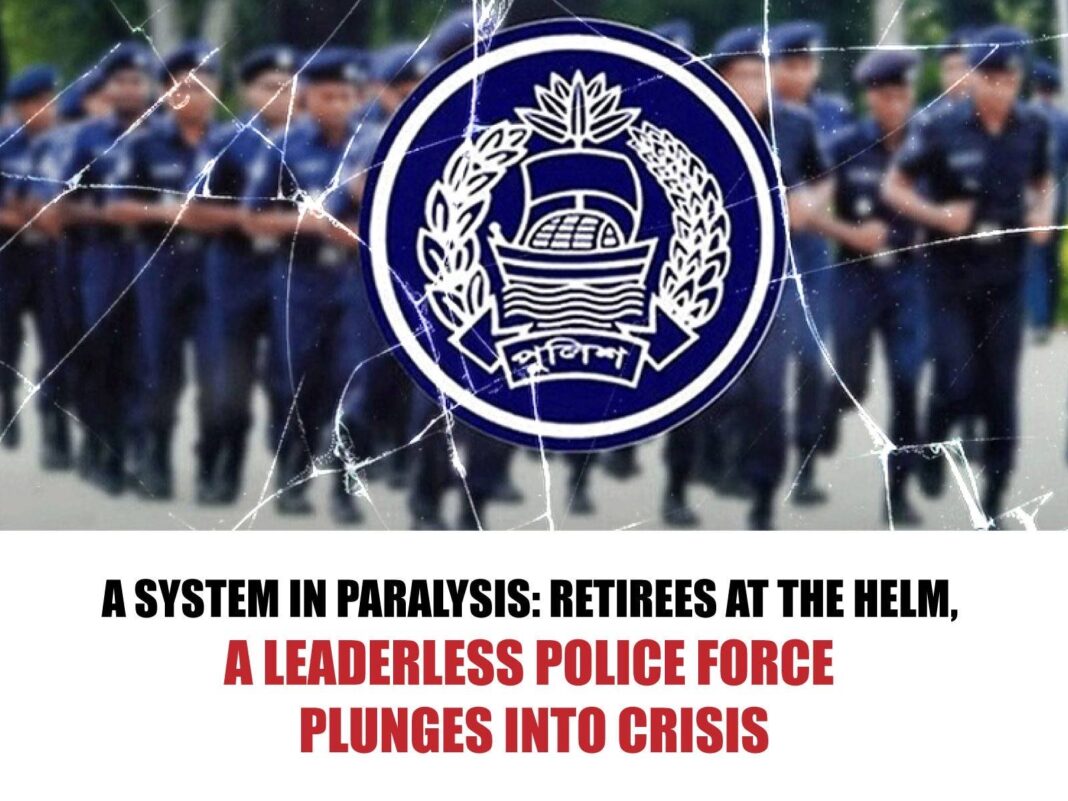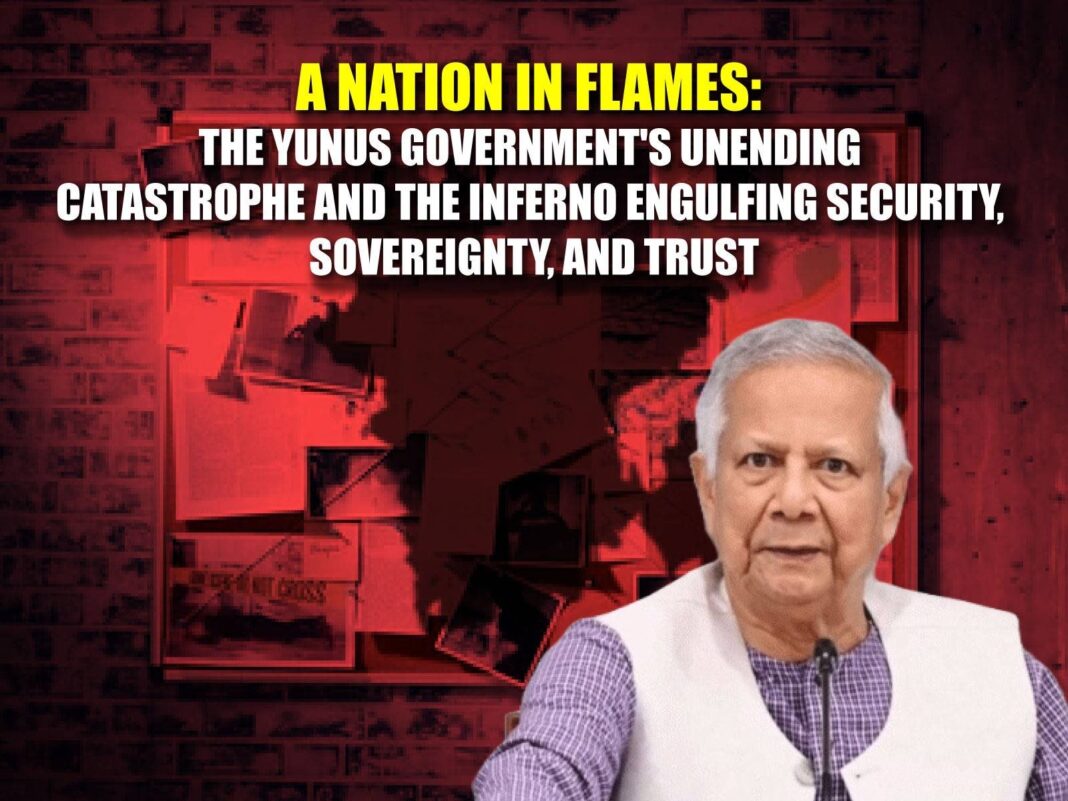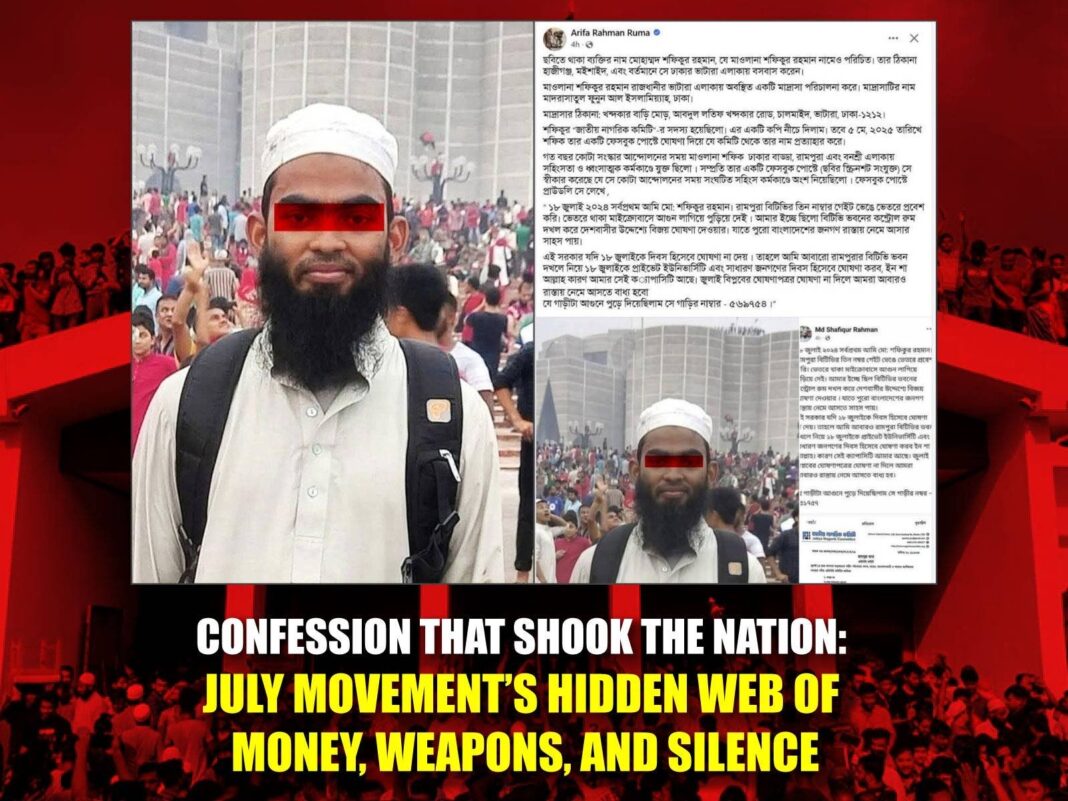Retirees at the Helm, a Leaderless Police Force Plunges into Crisis
The law and order situation in Bangladesh is spiraling into a vortex of alarming proportions. A glance at the daily news reveals a grim tapestry—murder, theft, terrorism, and attacks on government officials have become the relentless rhythm of our times. The safety of the common citizen now hangs by a thread, while within the administration, a chilling atmosphere of fear, despair, and utter uncertainty has taken hold, breeding a paralytic stalemate.
At the heart of this turmoil lies a terrifying void of leadership within the nation’s security apparatus. The police force is gripped by a leadership crisis of unprecedented scale. The highest office is held by an Inspector General who should have long since retired. Even the Commissioner of the capital’s Metropolitan Police clings to duty well past his retirement. The consequence? Decision-making has slowed to a crawl, while a glaring absence of inspirational leadership, accountability, and effective oversight has been laid bare.
Simultaneously, a plague of demoralization has infected the rank and file. In recent months, numerous police members have been brutally murdered, their cases languishing without justice or investigative progress. From Sub-Inspectors to Constables, a grim realization has set in: the will to confront criminals is withering away. They feel abandoned, believing that in their hour of peril, no one will stand by them. This profound despair is crippling the very efficiency and operational capability of the entire force.
The state of the intelligence agencies is no less catastrophic. Officers have been publicly humiliated, even arrested, on allegations of enforced disappearances and human rights violations. This has cast a pall of terrified silence over the entire intelligence framework. The very foundations of discipline, trust, and confidentiality, upon which these agencies were built over decades, now lie shattered. With the chain of command in ruins, intelligence operations have been rendered impotent, and the state has been stripped of its power to resist.
The strength of a law enforcement agency does not lie in weapons or numbers alone. Its true bedrock is morale, discipline, and unwavering faith in its leadership. If officers on the ground cannot trust that their superiors will deliver just decisions, free from the corrosive touch of political influence, then the force is doomed to fail. The outcome is singular and devastating: law and order crumbles, crime surges, and the safety of the citizenry vanishes into thin air.
When public faith in the state evaporates, it is not merely an administrative failure—it is a dire warning sign for national stability. The hour is upon us to cast aside the reign of retirees and entrust duty to a capable, competent, and impartial leadership. The urgent call of the moment is to rebuild trust within the force, ensure the delivery of justice, and restore the professional dignity of those sworn to uphold the law.
The history of Bangladesh stands as a grim witness: whenever the chain of command has faltered, the collapse of law and order has inevitably followed. Therefore, the most critical imperative today is to end this crippling leadership vacuum and resurrect a professional, accountable, and honorable administrative structure.
For the collapse of law and order does not merely fuel crime—it assassinates the very soul of the nation.





